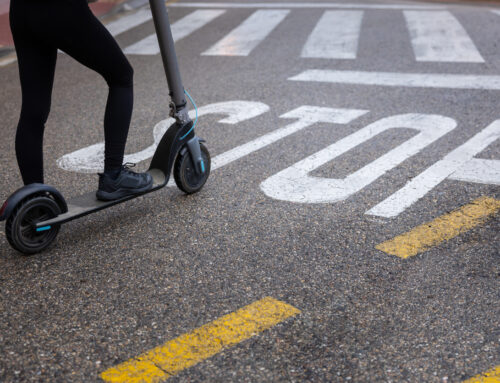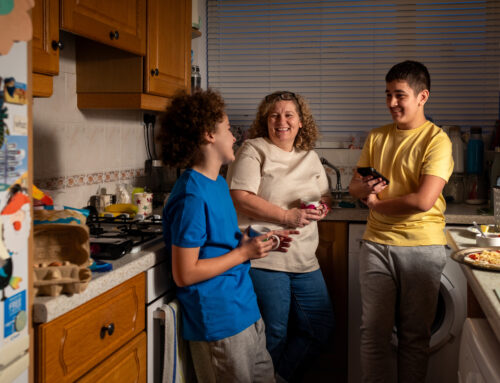4 Ways That Antisocial Behavior Can Show Itself in Teens

The adolescent years can feel overwhelming for children and their parents. As young people go through various stages of development, testing boundaries and exploring their identities, parents must decipher which changes are normal and healthy and which may be cause for concern.
Children who begin lying, disrespecting others, displaying hostility, or engaging in dangerous activities like underage drinking may simply be going through a difficult phase, but they could also be developing antisocial behavior patterns that could lead to larger problems if left unattended. It’s important for parents to understand how they can help their children overcome these issues.
What Is Antisocial Behavior?
Antisocial behavior is a broad term used to describe actions or attitudes that deviate from social norms and can harm others. In tweens or teens, it includes behaviors that isolate them from their peers, authority figures, or society in general. Here are some of the most common examples of antisocial behavior by young people:
1. Frequent Lying
Many teenagers lie. In fact, studies show that of all age groups, teens lie the most! If your teenager fibs about finishing their homework, you should call them out for being dishonest, but it’s not likely an indication of a bigger issue. However, if your child is being deceitful on a regular basis or telling lies in order to manipulate or take advantage of others, that’s a reason to be concerned.
2. Aggression
Teenagers are notoriously moody, but if your teen’s anger has your household walking on eggshells, it’s time to take a closer look at what’s motivating their hostility. Excessive aggression, whether verbal or physical, is a troubling form of antisocial behavior. Adolescents who engage in frequent fights or who bully and intimidate others are at risk of developing more serious behavioral or mental health issues.
3. Rule Breaking and Delinquency
Testing boundaries is an essential part of growing up. You should expect your child to push against the limits you and other authority figures have set for them. However, violations like skipping school on a regular basis or breaking laws (shoplifting, vandalizing property, etc.) are the kinds of antisocial behaviors that need to be immediately addressed.
4. Substance Misuse
Unfortunately, many teens experiment with underage drinking. In our 2023 State of Underage Drinking survey, 47% of high schoolers said they’d tried alcohol. Using alcohol or other substances on a regular basis is not only illegal, it’s likely a symptom of a more serious problem.
Risks of Antisocial Behavior for Young People
Antisocial behavior in adolescents can have significant long-term consequences, not only for the individuals involved but also for their families, friends, and communities:
- Academic Problems: Teens who exhibit antisocial behavior often struggle in school. Their actions can hinder their educational and career prospects.
- Legal Consequences: Engaging in illegal activities can lead to arrests, court appearances, and even incarceration. These legal entanglements can have lasting consequences on a teen’s life, especially since many colleges and employers perform background checks.
- Strained Relationships: Antisocial behavior can irreparably damage relationships with friends and family members.
- Health Issues: Teens who engage in antisocial behavior are at increased risk for developing alcohol and substance use disorders. They may also be dealing with mental health issues, such as anxiety, depression, conduct disorder, or antisocial personality disorder.
How Parents Can Help
If you suspect your teen is struggling with antisocial behavior, it’s important to take steps to help them connect with peers and develop healthier social skills:
- Foster open communication. Create a safe space to open communication pathways with your teen. Encourage them to share their thoughts and feelings, and listen without judgment. Let them know you want to work with them to address their concerns.
- Be a positive role model. Adolescents learn a lot from observing their parents. Let them see you demonstrate empathy, conflict resolution, and effective communication in your relationships.
- Encourage hobbies. Help your teen explore their interests. This can give them a sense of purpose and help them connect with like-minded peers.
- Work with a counselor. Some teens may need to work with a counselor or take a course to help them learn conflict resolution and anger management skills for positive social interactions.
When to Seek Professional Help
Many teens go through phases of antisocial behavior, but if you believe your child is having a crisis, it’s important to seek advice and support from a school counselor, family doctor, or mental health professional. Here are some signs that professional intervention may be needed:
- Severe and prolonged antisocial behavior
- Violence towards others or self-destructive behavior
- Criminal behavior
- Severe anxiety or depression
- Substance misuse
Start Talking it Out Today
Antisocial behavior being displayed by your adolescent won’t automatically lead to negative outcomes, but the sooner you address the behavior, the better off your child and your whole family will be.
Make time to talk with your teen and let them know that you care. Explain the risks linked to antisocial behavior along with the dangers of underage drinking and substance misuse. If you need tips to Start the Conversation or resources to assist a teen who’s misusing alcohol, visit talkitoutnc.org today. We’re here to help!



